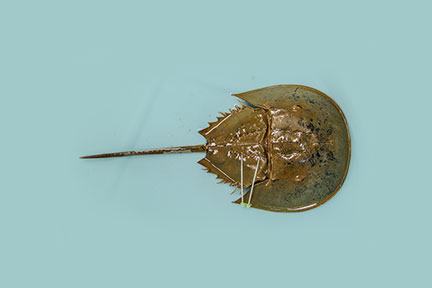The US Pharmacopoeia has cited the use of horseshoe crab-derived test reagents for ensuring the sterility of injectable drugs and implanted medical devices as the standard in lieu of more recently developed recombinant alternatives. This was first reported in Reuters by John Miller in Zurich and then in The New York Times on May 30, 2020. (“Drugs Standards Group Nixes Plan to Kick Pharma’s Crab Blood Habit ”; edited by Matthew Lewis, Christina Fincher and Sandra Maler).
An additional article was published in New York Times Science entitled "Tests for Coronavirus Vaccine Need This Ingredient: Horseshoe Crabs" by James Gorman in which the importance of this resource is further discussed.
“The endotoxin sciences have progressed substantially with respect to horseshoe crab aquaculture, testing reliability and new applications. These advances can help the biomedical industry avoid the cost and complexities of migration to alternative testing methods while reinforcing their confidence in established protocols. In fact, the horseshoe crab-derived substrate, Limulus Amebocyte Lysate (commonly known as LAL) is substantially more important, sustainable and valuable today than ever before,” stated Anthony Dellinger, president of Kepley BioSystems, on behalf of his research team in response to this development. He went on to highlight the company’s National Science Foundation funded findings in their recent publications.
“We report the development of a new LAL-based assay that can detect gram-negative bacteria and endotoxins in human blood without interference using aquaculture-derived LAL. Based on this research, sustainable LAL production from aquaculture could satisfy industry needs with a fraction of one year’s current capture via year-round harvesting from a finite cohort of [horseshoe crabs] and expand raw materials supplies for potential future clinical applications.” (Horseshoe Crab Aquaculture as a Sustainable Endotoxin Testing Source, Front. Mar. Sci., 01 April 2020, https://doi.org/10.3389/fmars.2020.00153)
And in earlier work, “This review examines [the horseshoe crab] role and recent trends in the biomedical industry that are impacting these ancient creatures and the derivative effect on shorebirds, while considering emerging alternatives where feasible, as well as ways to ensure sustainable and pragmatic harvesting strategies. Ultimately, healthy populations of horseshoe crabs are vital to restoring and maintaining ecosystems while balancing the need for medical and research applications...” (The Role of Horseshoe Crabs in the Biomedical Industry and Recent Trends Impacting Species Sustainability, Front. Mar. Sci., 05 June 2018 https://doi.org/10.3389/fmars.2018.00185)
The initial Kepley research objective was to apply the unmatched sensitivity of LAL to the rapid diagnosis of blood borne infections. As such, it could offer an alternative to blood culture that can require 24-48 hours for results and help save lives by informing immediate treatment for septicemia. The Kepley team focused on solving a longstanding cross-reactivity problem, as well as establishing sustainable husbandry, optimum feeding and low-impact, restorative harvesting to ensure the well-being of a finite cohort with zero mortality. Effectively “ranching” horseshoe crabs could thus avert up to 90% of the one year’s wild capture, leaving hundreds of thousands of them to replenish this keystone species every year thereafter.
Kepley is seeking partners in the pharmaceutical and medical devices industry to develop a sustainable aquaculture network to address sterility testing demands while continuing its research toward a rapid septicemia clinical assay.
Two additional reports have been submitted for publication: “Effects of Diet on the Biochemical Properties of Amoebocyte Lysate from Limulus Polypohemus in an Aquaculture Setting” and “Evaluation of Indoor and Outdoor Aquaculture Systems as Alternatives to Harvesting Hemolymph from Random Wild Capture of Horseshoe Crabs" and will be available on the Kepley BioSystems Horseshoe Crab Research page upon publication.
An additional paper, “Answering a Global Call to Arms,” chronicles the impact of lethal microorganisms and antibiotic resistance. Written before the COVID-19 pandemic, it sought to raise awareness of the ongoing threats of morbidity and mortality from infectious disease.


